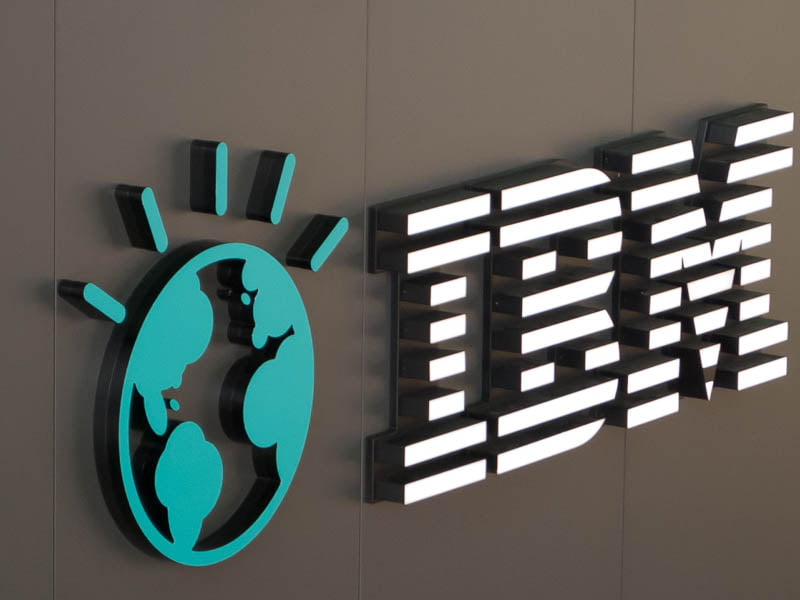A year ago, a federal ICT Procurement Taskforce recommended that individual contracts with suppliers last no longer than three years and carry a maximum value of $100 million. The government accepted these recommendations.
The new limits aimed to break contracts into smaller component parts, even for the largest of public sector technology projects. It was supposed to help open up new opportunities for smaller providers – including Australian SMEs – and to help government guard against vendor lock-in.

Last week, Human Services Minister Michael Keenan revealed a $1 billion whole-of-government ‘deal’ with IBM that covers a five-year duration. This arrangement raises many issues, not least the fact that its specific aim is to encourage vendor lock-in, rather than open opportunities for Australian providers.
This whole-of-government arrangement and the changed thinking it represents is very bad news for local tech suppliers, and it is bad news for Australian taxpayers.
2018 is turning out to be a bumper year for multinational tech providers in the federal public sector.
In fact, with IBM now having re-asserted itself as an outsized Australian Government supplier, it is beginning to smell a lot like the early 2000’s – the last time IBM enjoyed a long-term WoG outsourcing contract with the feds.
This government has talked a big game in relation to opening up opportunities to Australian tech companies, but is falling shockingly short in delivery. And the talk wasn’t supposed to be this cheap; these intentions to use government procurement as an industry development tool were baked into Coalition election commitments in 2016.
This has not happened. US multinational tech giants in particular haven’t had a better time in Canberra since John Howard.
There are a few points about the IBM arrangement that are worth exploring. Yes, I realise this is not a single contract, and thereby escapes the three-year, $100 million limits. But for government to signal its intent to purchase $1 billion worth of business from a company and lock-in the arrangement for five years is extraordinary.
Secondly, the Digital Transformation Agency negotiated and will manage this contract. It is simply worth noting that in announcing the deal, Michael Keenan made no mention of the DTA. That’s how on-the-nose that agency is right now.
You know who else is on the nose? IBM, that’s who. The #censusfail drama is apparently long-ago forgotten, despite the intensely embarrassing and outgoing black eye it delivered this government.
The adage that ‘no-one ever got fired for buying IBM’ makes for grim humour in this regard (despite IBM paying government $30 million in fine and parading the heads of a couple of its on executives on spikes as penance) and seems to have held true.
Thirdly, it is worth noting that the Department of Human Services and Defence was involved in the creation of the new IBM arrangement – as you would expect, I suppose – because IBM has a vice-like grip inside these organisations. DHS is a case-study in vendor lock-in.
The government has signed similar WoG arrangements with other incumbent tech giants like SAP, Oracle and Microsoft.
The reaction to the IBM arrangement has been more visceral than the others probably because of the still raw #censusfail issue on the one hand, and the fact that government is trying to portray the gigantic $1 billion metric as a good thing.
This is an ancient and crusty tech mantra – I have a giant contract, therefore I am powerful – that is quite simply jarring in the context of agile tech. Five years is an impossibly long time, and $1 billion is an impossibly big number.
This brings us back to the negotiation of the arrangement. If ICT contract negotiation was a competitive sport, and you’re watching a game between the global powerhouse IBM and the plucky triers from the DTA, where would you put your money?
IBM literally wrote the playbook on these kinds of arrangements.
How good are they? Well, according to at least one report, this five-year deal will allow Australia to access IBM investments in AI, blockchain, quantum and cloud.
IBM used to get accused of selling fear, uncertainty, and doubt when it dominated hardware and software sales in the mainframe and minicomputer eras of computing. It worked well as a strategy, and I suppose the fact that our government has just ‘bought’ quantum shows that it still does.
The Digital Transformation Agency has focused its procurement attention on the large multinational tech companies. This is to the detriment of Australian SMEs.
There is nothing the agency is doing to suggest it will get anywhere close to increasing the SME share of the Australian Government’s ICT spend by 10 per cent. This was the goal of the ICT Procurement Taskforce and Angus Taylor, the previous assistant minister for digital transformation.
The focus is on locking in the vendor relationships with the big US tech providers. The emergence of new procurement models to make it easier for smart SME’s with great technology to engage with government as suppliers has not eventuated.
There has never been a more frustrating time to be an Australian tech SME.
Do you know more? Contact James Riley via Email.

